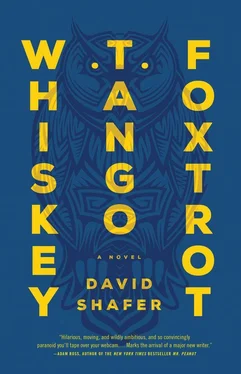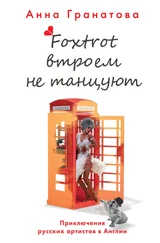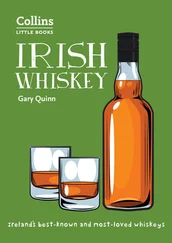Though, in a sense, he’d found Leo again.
At a creative executive conference in Phoenix six months ago, Mark had run into a college friend who had asked him “Have you seen Leo Crane’s blog?” in a way that meant Dude, you have to see Leo Crane’s blog . And when Mark found the blog, he saw why. It was called I Have Shared a Document with You, and it was like watching a vase fall off a shelf. In places, Leo’s prose had that mad true thing in it, like when people write ill-advised letters right after they get dumped. But in other places, it was just embarrassing. Mark started lifting some of the mad true stuff for his radical-creativity seminars. He didn’t think it counted as plagiarism, exactly. Leo wasn’t even putting his name on his stuff, and the ideas in the blog posts were pretty much public domain — type ideas. Mark just used a few of Leo’s phrases. Like fears and desires . Leo was always going on about fears and desires in his batshit blog.
In the café of the toy museum, Mark spent ten minutes trying to compose a postcard to Leo. His pen floated over the white rectangle. What could he possibly write?
You would like this museum, he began. But no, that wasn’t what mattered.
I’m sorry I put you in my stupid book? I’ve also been using some of your stuff in these seminars I give? Which are bullshit, by the way? I miss you? You sound crazy these days? We once had the world by the balls, you and I? I’m lonely? I’m in trouble? I’m lost, like you, but in a different way?
No. It was too late for any of that. It seemed to Mark that all of life was either There’s still time or It’s too late. He tore up the postcard.
He spent another hour poking paragraphs around the screen. But now he’d lost the thread he’d been pulling on. Who cares about what he remembered from his childhood? A teacher in high school once told him that until you can describe clearly what it is you mean, you don’t really mean it. That was the last great thing he had been taught in a classroom.
It was time to make his way to Straw. He went back to the flat to clean up. Mark always tried to bring his A-game to these Straw sessions. Not that Straw really seemed to notice what Mark brought. And maybe A-game didn’t really describe what Mark brought. What Mark brought was a big, elaborate, flattering lie.
Mark had been James Straw’s life coach for a year now. It was an easy arrangement: he was required only to find the man’s rambling soliloquies compelling, pretend to see meaning in them, then offer some not too transparent but not too opaque homily or parable that confirmed what Straw already thought. Straw treated these sessions as if they were genuine therapy and vented about the stresses of being hyperwealthy. Clearly, Straw had suggested Mark’s London sabbatical mainly because he, Straw, was going to be in London for a few months and didn’t want to be without access to Mark.
And there was something going on other than life-coaching. After a session, Straw might take Mark to lunch or dinner at some private club or his Mayfair town house. They would cross London in Straw’s armored and motorcycle-escorted Bentley. Last week, after a session and a boozy lunch, Straw brought Mark to a shirtmaker on Jermyn Street where he ordered for Mark twelve dress shirts in a chromatic range from white to cream, all with double cuffs and eyelet collars, and bought him also the little silver barbell things that joined the collar tips behind the necktie.
Cleaned up and steeled with a line of crushed Ritalin, Mark left the flat again. He liked crossing London by tube. If he was in the right mood, he could feel himself carried along on the human tide, and the experience imparted a pleasant anonymity; it made the leaf-in-the-stream stuff apparent, and he felt that he was connected to the sweaty straphangers — the adolescent transgressively sexifying her school uniform, the suave subcontinental with his head bobbing to the tinny Hindi that Mark could just make out.
But despite the Ritalin zing, Mark’s mood was sour. Weaving around the abject tourists trying to work the ticket machine in the tube station, Mark resented them intensely and would have personally banished each one to the gulag for the offense of getting fatly in his way. He was not a leaf in a stream but a stone in a dark pool, sinking, and there was really no hope for humanity, because everyone’s out for himself and there’s no way around that.
“You were right about the Chileans, by the way,” said Straw once they’d taken up their classic analytical positions — Straw supine on a couch and Mark in an Eames chair, facing some degrees away—“I mean, that I shouldn’t have gone into business with that lot. An unsavory people, the Chileans.” They were in Straw’s double-height great hall of an office, on a fog-spangled corner of the SineCo building in Canary Wharf.
Mark could not remember formulating or articulating any opinion about Chileans or about going into business with them; he didn’t know what Straw was talking about. This was always happening with Straw. In such situations, you have about thirty seconds to say to someone I don’t know what you’re talking about, before your remaining silent rather commits you to the lie of pretending to understand. Mark was committed.
Luckily, James Straw was so deferred to that he never seemed to consider the possibility that a person he was speaking to might not be following his every Straw-centric turn, so he never asked for any confirmation. He had assistants whose job it was to de- and rebrief anyone leaving a Straw meeting to make sure that the poor schmuck understood what he had just been instructed to do. But Straw’s relationship with Mark was different. Straw considered Mark’s ear and counsel a relief from the pressures of his day and life (no one understood him, basically). Mark definitely got the sense that a few of Straw’s legion of assistants resented Mark’s having cut the line, particularly the elfin Swiss named Nils. So Mark had to watch out for those guys. It worked because his sessions with Straw were private; there was no one else in the room to hear just how transparently flattery-based Mark’s approach to Straw was. Straw spent their hour-long sessions complaining about inept inferiors and scheming competitors and greedy siblings and “communist” government regulators. Mark would simply listen, nod, and every few minutes say something like “Have you considered that these people might be motivated by jealousy or that they lack your grasp of the bigger picture?”
The trick was the careful and well-timed echoing-back of Straw’s own ideas and phrases— the bigger picture came up regularly. In fact, in the year that Mark had been life-coaching Straw, he had constructed only the vaguest idea of what Straw’s workday consisted of or how SineCo churned out its billions. Syndicates acquired companies, or cornered sectors, or consolidated holdings. Mark did understand that Straw was something of an objectivist, though the man had never heard of Ayn Rand (he read exclusively nautical-adventure fiction and mass-market management theory), and over time, Mark heard himself agreeing by nods and I see s with an ever more market-based and owner-operated notion of how the world should be run.
Since coming to London, though, Straw had begun to talk more during their sessions about the nature of his business empire. Lately, he was very excited by a new branch of SineCo he was calling the Core Vision Department. Mark assumed that such a department would churn out PR claptrap about the core vision of the company, something about how everyone should be empowered by choice and leveraging knowledge and improving access et cetera. That had been a large part of Mark’s job for the biogenetics company in Cambridge: writing very abstract copy about the value of innovation.
Читать дальше












